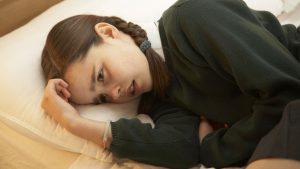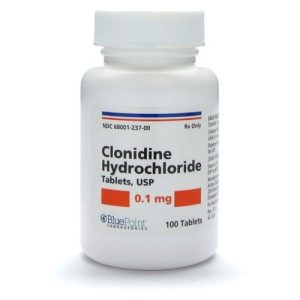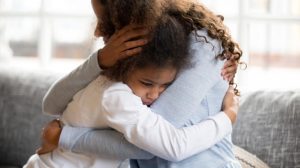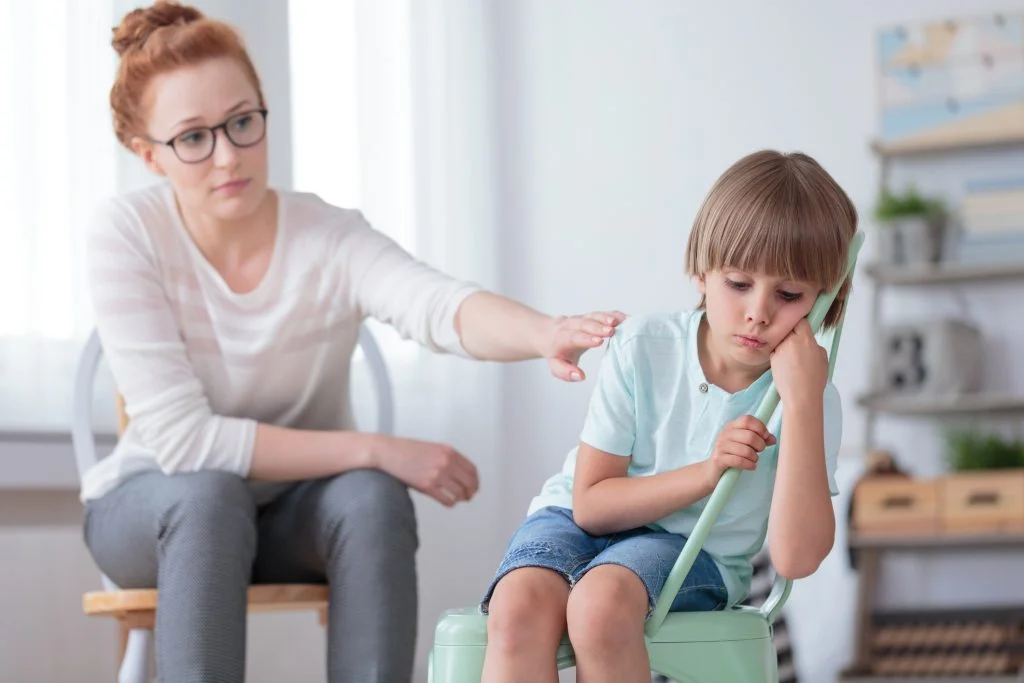Anxiety is common in children and can be caused by many different factors. A doctor may prescribe anxiety medication for children to help a child with anxiety, depending on the severity of the condition.
Contents
- 1 Anxiety In Children
- 2 What Causes Anxiety In Children?
- 3 Signs Of Anxiety In Children
- 4 Anxiety Medication For Children
- 5 Types of Anxiety Medication For Children
- 6 Role Of Medication In Treating Childhood Anxiety
- 7 How To Help An Anxious Child?
- 8 Ways To Cope With Your Own Stress
- 9 Tips For Parents
- 10 Tips For Finding The Right Treatment Plan
- 11 Conclusion
- 12 A Word From Therapy Mantra
Anxiety In Children

Anxiety is a feeling that can happen to kids. It can be the result of different things. Sometimes, doctors will give children medication called “anxiety medication”. Usually, they will do this if the anxiety the child is feeling is causing a problem in their life.
What Causes Anxiety In Children?
There are many things that can cause children to feel anxiety. They may be anxious about something school-related such as bullying or having problems making friends. Other times it can happen because of family problems or changes, such as divorce or death in the family. Very serious illnesses and stressful events like moving too often can also make kids feel anxious.
Signs Of Anxiety In Children
If you feel like your child may be struggling with an anxiety disorder, look for these signs:
- Sudden and extreme fear or nervous when faced with situations that aren’t necessarily dangerous
- Unrealistic fear of everyday things like storms or darkness
- Worrying about certain things for weeks or months at a time, along with the inability to stop the worry cycle
- Problems sleeping because of stress and anxiety
- Regular stomachaches, headaches, or other physical symptoms that don’t have an obvious cause
- Increased irritability and moodiness
Anxiety Medication For Children

Some children need medicine to help them feel less anxious. Medicine can help kids feel braver and less worried. It is okay to take medicine if it helps your child feel better. You can talk to your doctor about what might be the best medicine for your child.
- Since anxiety medication for children and adolescents can carry risks and side effects, it should be taken under a doctor’s supervision.
- Some kids worry about taking medicine because they don’t like the taste or getting shots. You might find it helpful to remind your child that they need medicine to treat their illness and make them feel better.
Types of Anxiety Medication For Children
There are many types of medication for anxiety. Some can be used on children and some cannot.
In general, the types of medication that can be used for children are as follows.
- Benzodiazepine tranquilizers
- Beta-blockers
- Buspirone hydrochloride (Buspar)
- Clonidine hydrochloride (Catapres)
These medications may need to be prescribed by a child psychiatrist or a pediatrician. There are some other types of medication not mentioned on this list that may be prescribed by a family physician, but only after seeing a specialist. The anxiety disorders chapter deals with which anxiety disorders can and cannot be treated with these medications. Each medication has its own chapter discussing its dosage and possible side effects. It is important for the parent and child to read each chapter so they know about the medications and can ask questions to the doctor.
Benzodiazepines
 Benzodiazepines are medications that affect serotonin and gamma-aminobutyric acid (GABA), a chemical in the brain, to produce their calming effects. They are very helpful for reducing anxiety symptoms quickly. There are several benzodiazepine drugs available, including clonazepam (Klonopin), alprazolam (Xanax), diazepam (Valium), lorazepam (Ativan), chlordiazepoxide (Librium), and oxazepam (Serax). Some of these medications can be prescribed by family physicians but others must be prescribed by specialists such as psychiatrists or pediatricians because only these doctors can determine which medication is best for the child. Benzodiazepine tranquilizers are used to treat anxiety disorders, panic disorder, agoraphobia, and social phobias. They may also help children with selective mutism.
Benzodiazepines are medications that affect serotonin and gamma-aminobutyric acid (GABA), a chemical in the brain, to produce their calming effects. They are very helpful for reducing anxiety symptoms quickly. There are several benzodiazepine drugs available, including clonazepam (Klonopin), alprazolam (Xanax), diazepam (Valium), lorazepam (Ativan), chlordiazepoxide (Librium), and oxazepam (Serax). Some of these medications can be prescribed by family physicians but others must be prescribed by specialists such as psychiatrists or pediatricians because only these doctors can determine which medication is best for the child. Benzodiazepine tranquilizers are used to treat anxiety disorders, panic disorder, agoraphobia, and social phobias. They may also help children with selective mutism.
Benzodiazepines are prescribed to children with anxiety disorders when they have already shown an adequate response to a selective serotonin reuptake inhibitor (SSRI) antidepressant. However, benzodiazepines may not be appropriate for children who have impaired liver or kidney function or sleep apnea because they can cause respiratory depression in these conditions. Benzodiazepine drugs should only be used for short periods of time. This is partly due to concerns for physical dependence on these medications which is more common when taken longer than 3 months. In fact, even short-term use of benzodiazepines has been associated with tolerance and paradoxical reactions.
Beta-blockers
Beta-blockers decrease the activity of certain natural chemicals in a person’s body including epinephrine (adrenaline). These are effective for treating physical symptoms associated with anxiety such as a racing heartbeat or shaking hands. There are several beta-blockers available including atenolol (Tenormin), metoprolol tartrate (Lopressor), nadolol (Corgard), propranolol hydrochloride (Inderal), sotalol hydrochloride (Betapace), and timolol (Timoptic).
Buspirone
Buspirone hydrochloride is anxiolytic. It is effective for treating generalized anxiety disorder, social phobia, and post-traumatic stress disorder when taken with other medications. The drug has few side effects so it may be prescribed instead of benzodiazepines. However, more study is needed to determine if it is as safe and effective as benzodiazepines in children. There are some antidepressants that can also help a person feel more relaxed or less nervous such as bupropion (Wellbutrin), citalopram (Celexa), fluoxetine (Prozac), paroxetine (Paxil), sertraline (Zoloft), and venlafaxine (Effexor).
Buspirone is generally started at a low dose with slow up-titration. It is usually taken once or twice daily with or without food. Possible side effects include headache, nausea, and nervousness. Some people may experience dizziness when they first start taking buspirone, but this tends to decrease over time. Buspirone takes several weeks to produce the full effect so it should be taken regularly for an extended period of time before any benefit is noticed by the child or parents. Like all medications used in children, there is a chance of buspirone causing unwanted side effects such as irritability and tiredness when it has been prescribed.
Clonidine
 Clonidine hydrochloride is an alpha-2 adrenergic agonist that affects parts of the brain involved in stress reactions. It has been effective for treating children with ADHD and tic disorders when patients take these with other medications. However, it can also reduce anxiety symptoms so it may be prescribed along with any other medication or therapy to help manage a child’s anxiety while they are working on other treatments. It is recommended to take clonidine about one hour before bedtime because it can cause drowsiness during the day. Children taking clonidine should not drive or operate dangerous machinery until they know how well their body reacts to this medication.
Clonidine hydrochloride is an alpha-2 adrenergic agonist that affects parts of the brain involved in stress reactions. It has been effective for treating children with ADHD and tic disorders when patients take these with other medications. However, it can also reduce anxiety symptoms so it may be prescribed along with any other medication or therapy to help manage a child’s anxiety while they are working on other treatments. It is recommended to take clonidine about one hour before bedtime because it can cause drowsiness during the day. Children taking clonidine should not drive or operate dangerous machinery until they know how well their body reacts to this medication.
The most common side effect reported by parents was sleepiness after taking their child’s clonidine in the morning. Other side effects include a slow heart rate, reduced blood pressure, dry mouth, and fatigue.
Role Of Medication In Treating Childhood Anxiety
Medications can be helpful for children with severe anxiety who do not find relief from other treatments. Medications or drugs are usually a part of a larger treatment plan, such as cognitive-behavioral therapy (CBT) or an individualized education plan (IEP). Speak to your child’s doctor about the benefits and risks of medication before starting. Here are some points to consider:
- Your child should never take daily medications unless they’re used as part of CBT or IEP (which means you’ll need a doctor’s prescription)
- Don’t start or stop taking any medication without talking to the prescribing health professional first. Even over-the-counter drugs like cold medicine can interact with other medications, so be sure to talk it over with your child’s doctor first.
- Antidepressants may have side effects that cause some children to feel worse before they feel better. Be patient and stay in close contact with the prescribing professional until your child starts feeling better.
- Have an up-to-date medication list of what your child is taking for his or her doctor, as well as a list of any allergies and reactions.
- When your child is taking medication, have a backup plan in place for times when he or she might not be able to take a dose. You might not know how long you’ll be at the doctor’s office and should always have enough medicine. If it’s time for a dose and you can’t make it home before it’s due, ask if there’s somewhere nearby that will give them the needed medication ASAP. It could be as simple as having juice or other liquid that can help mask the taste of some medications. For more information on what you need to know about SSRIs, ask your healthcare provider to explain them to you
How To Help An Anxious Child?

Anxiety medication for children can be used to help children with anxiety. Some kids also need therapy or counseling to work through problems in their lives. If the child you’re caring for is anxious, it may be helpful to:
- Provide a safe place where your child can talk about their feelings, concerns, and worries
- Offer support when your child talks about what’s causing them stress
- Be willing to discuss any issues your family might face that could be contributing to your child’s fears
- Remind your children there are lots of fun things they can do, even if they feel afraid
- Be a good role model by not worrying excessively about everyday problems and concerns
- Encourage healthy practices such as healthy eating, going to bed at a regular time, exercising, and getting outside every day
- Let your child know that you love them no matter what.
- Spend one on one time with your child doing fun activities
- Show an interest in their interest.
- If your child is anxious about going somewhere, let them wear sunglasses or a hat to reduce their anxiety (visual distractions)
- Take your child’s lead.
There are many things that might make your child anxious and you don’t know what they all are unless you ask. Let them guide how much involvement you have with their anxiety. Don’t push too hard or try to be the hero to fix everything as this can actually exasperate the situation and increase anxiety for your child.
Ways To Cope With Your Own Stress
If you’re feeling stressed or worried, these tips can help you be more patient with your children:
- Get enough sleep. Getting the right amount of sleep helps your body stay healthy and is important for everyone in the household to do well.
- If you smoke, try to quit. Smoking can increase feelings of stress and make it harder for a mom to be emotionally and physically available for her children.
- Plan for time for yourself, such as going to the gym or checking emails on your cell phone while riding in the car when the kids are with a caregiver.
- Eat healthy food and get regular checkups from your doctor.
- Be aware of alcohol use and how it impacts your moods and energy level. Alcohol may seem like it helps you relax initially but can actually make anxiety worse in the long term.
Tips For Parents
 Some parents choose to deal with a child’s anxiety by avoiding situations they know will trigger their fears, while others encourage their child through exposure to the anxiety-provoking situation. Most children will overcome fears on their own, but some may need help from a mental health professional. Try these suggestions for ways to manage your child’s fears:
Some parents choose to deal with a child’s anxiety by avoiding situations they know will trigger their fears, while others encourage their child through exposure to the anxiety-provoking situation. Most children will overcome fears on their own, but some may need help from a mental health professional. Try these suggestions for ways to manage your child’s fears:
- Use positive reinforcement and rewards (fun outings or treats) to help motivate their progress
- Face the fear with your child. For example, if they’re afraid of dogs, take them around friendly pets where they feel safe at first, then more comfortable as time passes
- Teach your kids that while some things are out of control (such as how many times you go to school), there are also things we cannot control (such as thunderstorms). They should always try to be brave and do their best when faced with uncontrollable situations
- Let your kids know that they can stop or “take a break” anytime they feel too overwhelmed. They should not feel pressured to do something if it’s beyond their limits
- Teach your children basic anxiety management skills to cope with fear and worry, such as breathing slowly, repeating an encouraging word or phrase, counting backward from 10, or imagining themselves in a safe place
- Relaxation techniques like deep breathing help many kids calm down when feeling anxious. This may be as simple as taking 10 deep breaths before attending a social function at school so they don’t have to spend the whole time worrying about how to act around others. For more specific tips on relaxation, talk with your child’s doctor or health professional
Tips For Finding The Right Treatment Plan

Getting treatment for anxiety is necessary. But to ensure that your child is taking the right kind of treatment is equally important. Here are some tips for helping you choose the right treatment plan-
- When choosing treatment options, keep your needs as well as your children’s needs in mind
- Communicate openly with all involved parties
- Ask questions and do some research
- Have patience- progress may not happen overnight
- Keep children safe by making sure they are in a healthy environment
- Support groups can be an invaluable resource for parents coping with mental illness
- Get help when you need it most
- Ask professionals what kind of resources are available
- Know your boundaries
- Find time for yourself so that you can be there fully for your child
Conclusion
When it comes to anxiety medication for children, it’s important to find the right balance between treating the symptoms and ensuring that the child can still function in everyday life. Too much or too little of any anxiety medication can have negative consequences, so finding the sweet spot is essential. Parents should consult with a doctor to determine what would be best for their individual children. There are many different types of medications available, so there’s likely one that will work well for your child. If you’re concerned about how your child is doing at school or with social interactions, don’t hesitate to ask for help. Anxiety medication for children can make a big difference in their lives. If you or your child is looking for help for anxiety. Do reach out to us, and get the best treatment.
A Word From Therapy Mantra
Your mental health — Your psychological, emotional, and social well-being — has an impact on every aspect of your life. Positive mental health essentially allows you to effectively deal with life’s everyday challenges.
At TherapyMantra, we have a team of therapists who provide affordable online therapy to assist you with issues such as depression, anxiety, stress, workplace Issues, addiction, relationship, OCD, LGBTQ, and PTSD. You can book a free therapy or download our free Android or iOS app.


